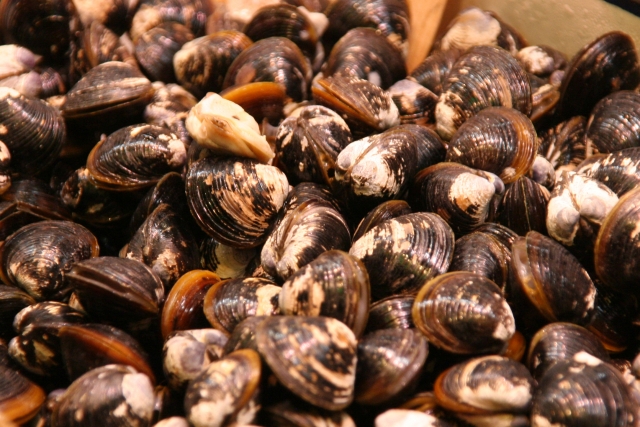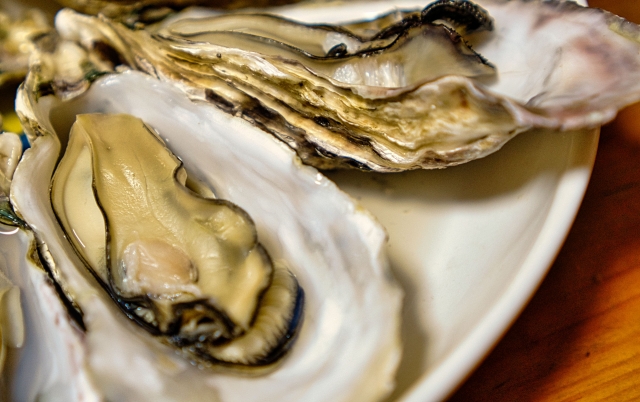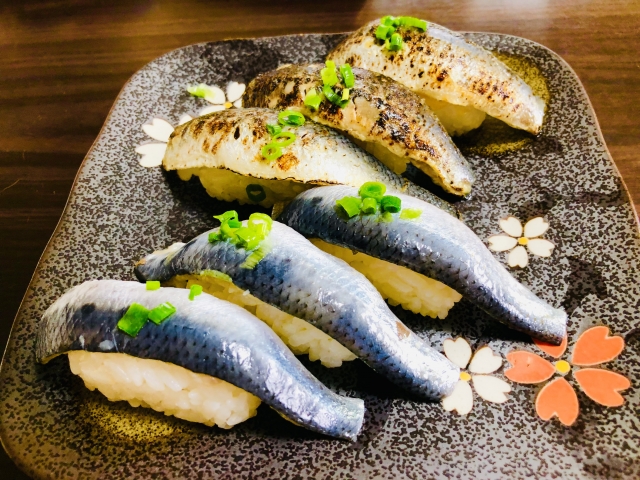Foods that improve sleep quality

Foods that improve sleep quality are those that become sleeping substances in the body, improve the intestinal environment, and have positive effects on sleep. These include fermented foods such as yogurt, soy, liver, seafood, and many others.
Soy Foods
The following article cites and references a research paper entitled トリプトファンとその代謝産物について.
Foods such as soybeans, soybean flour, and frozen tofu are high in tryptophan. Tryptophan is one of the essential amino acids and is not only a material for protein synthesis, but also serotonin and melatonin. Serotonin stabilizes the mind and is involved in sleep. It is also said to be secreted when we feel happiness. Melatonin is also involved in the regulation of biological rhythms and is a hormone related to the body clock. It plays an important role in seasonal changes in gonadal function, and is involved in biological rhythms such as sleep and wakefulness, mental activity, and also has an antioxidant effect that reacts with active oxygen produced in the body. In addition, wheat germ, cashew nuts, sesame seeds, sunflower seeds, dried baby sardines, dried bonito flakes, skimmed milk powder, and natural cheese are also rich in tryptophan.
The daily tryptophan requirement is 17 mg/kg for infants, 12.5 mg/kg for toddlers, and 3.5 mg/kg for adults, making it the essential amino acid with the lowest daily requirement. Tryptophan is necessary for growth and mental function, but there are dangers associated with taking too much, including the development of a disease called hypereosinophilic myalgia group due to high intake.
Shijimi clam (fleshwater calm)

Shijimi clam (fleshwater calm) contains an amino acid called ornithine. Ornithine increases non-REM sleep, which is deep sleep. Its effects are more potent than glycine, which is marketed as a sleep-improving supplement, but are limited to a short period of time after taking it, and increased doses can adversely affect sleep.
Animal liver, shijimi clam and clams
The following article cites and references the research article 睡眠覚醒リズムとビタミンB12.
Animal liver, shijimi and clams are rich in vitamin B12. Vitamin B12 has a rhythm-synchronizing effect for people with sleep-wake rhythm disorders.
A 17-year-old girl with congenital blindness who had been experiencing a daily shift in her sleep schedule for more than 10 years since around age 3 was given 1.5 ng/day of vitamin B12 for 4 to 5 days, and her sleep onset time became regular. (1000000000ng=1g.) When vitamin B12 was temporarily discontinued, the rhythm began to free-run again, and upon re-dosing, the rhythm became synchronized again.
Saffron

Saffron is a spice used in bouillabaisse and paella that contains medicinal compounds called crocin and crocetin. These increase non-REM sleep, which is deep sleep in a capacity-dependent manner, for several hours.
The main ingredients are pesticide-free and additive-free. In addition, there is a health food product that uses only the most crocin-rich mebbe of saffron.
![]()
Functional Foods [ぐっすりサフラン]
![]()
Sleeping grass (Aquifoliaceae)

There is a plant called akino wasuregusa, known as sleeping grass in Okinawa. It contains an amino acid called oxypinatamin, which increases non-REM sleep.
False asparagus leaves
The following article cites and references a research paper on アスパラガス擬葉摂取による睡眠改善効果.
If you leave a growing asparagus plant alone, a thin leaf-like substance will grow out of the leaf parts. That is asparagus pseudo-leaf. When capsules containing 2 g/day of these asparagus pseudo-leaves were taken for 2 weeks by 10 men aged 40-69, their sleep was improved by a sleep questionnaire called PSQI before and after taking the capsules. In particular, waking up may improve.
Oyster

The following article cites and references a research article on 勤労者を対象としたカキ肉エキス含有食品のストレス、疲労、睡眠の質及びQOLに対する効果の検討.
Oysters are rich in minerals such as selenium and iron as well as zinc. It has been reported that depressed patients have low levels of zinc in their blood. In addition, decreased sugar metabolism in the brain has been reported as one of the common phenomena in depressive symptoms and sleep disorders. It is possible that selenium deficiency is related to decreased glucose metabolism in the brain. In this study, men and women between the ages of 20 and 60 who were mainly working at their desks were tested and found to be able to sleep better, maintain their sleep, and recover from fatigue when they consumed foods containing oyster extract.
Fish such as sardines and tuna

The following article cites and references a research paper on 脂質摂取による睡眠への影響.
The subcutaneous fat of fish such as sardines and tuna, and aquatic mammals such as whales and seals, is rich in n-3 fatty acids such as eicosapentaenoic acid (EPA) and docosahexaenoic acid (DHA) in the form of triacylglycerols. Supplementation with omega-3 fatty acids from fish oil prevents the decrease in glutathione peroxidase, catalase and glutathione/oxidized glutathione ratio in the hippocampus and normalizes the increased level of oxidized glutathione. Omega-3 fatty acids may prevent memory impairment due to reduced sleep duration, as omega-3 fatty acids suppressed lipid oxidation in the hippocampus. Although not directly related to sleep quality or quantity, the abundance of highly unsaturated fatty acids may reduce the effects of sleep disturbances through their antioxidant function.
Salmon and trout roe

The following article cites and references a research paper on 脂質摂取による睡眠への影響.
Salmon and trout fish roe contains DHA-bound phosphatidylcholine. When 1000 mg of extracted oil from salmon fish roe was consumed for 3 months and compared to reference sleep (here, the third night), the percentage of REM sleep, which is shallow sleep, increased. The increase in REM sleep was not unlimited, but increased within the physiological range (around 30%) and also gave a sense of sound sleep. It was suggested that increased REM sleep may lead to an increased sense of sound sleep. According to the author of this paper, since there are only REM and non-REM sleep, if either one is properly regulated, the other will inevitably be regulated as well.
Dietary Fiber and Sugar
The following article cites and references the research article Fiber and Saturated Fat Are Associated with Sleep Arousals and Slow Wave Sleep.
Fiber intake increases slow wave sleep, which is deep sleep, and high energy intake from saturated fatty acids decreases slow wave sleep. Higher energy intake from sugar and non-fiber carbohydrates is associated with more wakefulness.
Yogurt
Regulating the intestinal environment leads to better sleep quality. And the most effective foods for regulating the intestinal environment are fermented foods. The most famous of these is probably yogurt.
The following article cites and references a research paper entitled ヨーグルトと微生物.
Yogurt has been shown to regulate the intestines, improve fecal matter, reduce intestinal putrefactive products, and increase the number and occupancy of bifidobacteria. Many nutrients are digested and absorbed in the small intestine, but the small intestine is still affected by stomach acid and oxygen, and only a limited number of bacteria species can settle in the small intestine. The large intestine, on the other hand, is highly anaerobic, with a very high density of commensal anaerobic bacteria. They will utilize nutrients that have not been digested and absorbed in the small intestine. Dietary fiber is also involved in fecal formation, but it is also an important source of energy for intestinal bacteria. So eating fiber can also have a greater impact on sleep. A properly structured gut microbiota is essential for maintaining homeostasis. However, in recent years, it has been tested not only for its intestinal regulating effects, but also in many other areas, such as infection protection, gastrointestinal immune regulation, inflammatory bowel disease improvement, and cancer suppression. Incidentally, it has been reported that the intestinal microflora of patients with irritable bowel syndrome is decreased in Bifidobacterium and Lactobacillus (a genus of lactic acid bacteria) compared to healthy people, so yogurt should be eaten.
Yeast for sake brewing
The following article cites and references a research paper titled “清酒酵母による睡眠の質改善作用と機能性表示食品への応用”.
Sake yeast has relaxing and sedative effects and appears to have the ability to facilitate brain function and improve sleep quality.


コメント